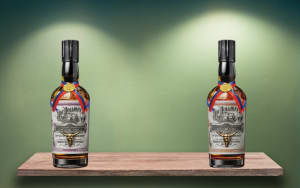Diageo, the renowned British drinks company behind brands like Johnnie Walker, Guinness, Smirnoff, and Baileys, is bracing for a challenging period as it confronts the impact of new US tariffs. The tariffs, recently confirmed by the Trump administration, could slash the company’s operating profits by an estimated $200 million over the final four months of its financial year. This significant forecasted loss stems mainly from the impact on its tequila and Canadian whisky ranges.
Tariff Details and Market Exposure
The new 25% tariff applies to imports from Canada and Mexico. This is particularly concerning for Diageo since a large portion of its US revenues—around 45%—comes from products made in these regions. Tequila brands, which are predominantly produced in Mexico, are expected to bear the brunt of these charges. Canadian whisky, including popular labels such as Crown Royal, is also at risk. The tariffs come at a time when Diageo was starting to see a recovery in its sales figures. However, these new duties threaten to reverse this positive trend.
Impact on Financial Performance
During the six-month period ending in December, Diageo reported net sales of approximately $10.9 billion, a slight decline of 0.6% compared to the previous period. Although organic sales experienced a modest growth of 1%, the overall environment remains volatile. Operating profit also dropped, adding to the pressure on the company’s financial health. The anticipated $200 million impact on profits—predominantly tied to tequila, which accounts for about 85% of the tariff-related losses—has raised concerns among investors and market analysts alike.
Management’s Response and Strategic Measures
In response to the uncertain tariff landscape, Diageo’s leadership has initiated several strategies to mitigate the financial hit. Chief Executive Debra Crew acknowledged that while the company had prepared for various tariff scenarios, the recent decision by the Trump administration could derail its recovery momentum. The management is now exploring options such as raising prices and reducing promotional activities to cushion the impact. Additionally, Finance Chief Nik Jhangiani revealed that approximately 40% of the projected hit might be offset before any price increases are implemented. The company is also planning to increase its product shipments to the US market ahead of the tariffs taking full effect.
Wider Industry Implications
Diageo is not alone in facing these challenges. Other major European drinks makers, including Pernod Ricard, Campari, and Rémy Cointreau, are also exposed to the risks associated with higher tariffs on imported goods. Investment banks like Jefferies have highlighted that nearly half of Diageo’s US revenues come from products imported from Canada and Mexico, underscoring the broader risks within the drinks industry if trade policies continue to shift unpredictably.
Analysts warn that the tariff threat introduces significant uncertainty, potentially affecting consumer behavior and overall market stability in the US—a market that remains Diageo’s largest. With US consumers still grappling with inflation, high interest rates, and rising credit card debts, the additional burden of increased product prices might further dampen demand.
Impact on Sales and Market Strategy
In recent months, Diageo had already scrapped its target of achieving 5%-7% annual sales growth due to the unpredictable economic and political climate. This decision came after the company observed slower sales, particularly in its spirit categories, even as its beer segment, led by Guinness, showed promising growth. Guinness, in particular, experienced a 13% increase in sales, partly driven by a surge in demand for its non-alcoholic version, Guinness 0.0, which nearly doubled its sales figures.
Despite these positive notes, the US tariff announcement has cast a shadow over Diageo’s recovery efforts. The tariffs are expected to not only impact the tequila and Canadian whisky segments but could also have ripple effects on the broader range of premium spirits offered by the company. Investors have reacted negatively, with Diageo shares experiencing a drop following the announcement.
Looking Ahead: Uncertain Times for Premium Spirits
As the company continues to navigate these choppy waters, Diageo remains engaged in discussions with the US government, seeking clarity and possibly adjustments to the tariff policies. The leadership is closely monitoring the situation, aware that any further imposition of tariffs on UK products—particularly its high-demand whisky exports—could worsen the situation significantly.
Market observers note that the current environment is one of significant uncertainty for premium drinks manufacturers. With consumer preferences shifting—driven by health-conscious trends and economic pressures—Diageo and its peers must adapt quickly. Despite these challenges, Debra Crew remains optimistic that there will still be a robust demand for premium spirits, even as the company recalibrates its strategies to safeguard its market position.
Final Thoughts
In summary, Diageo faces a precarious situation as it contends with new US tariffs that could cut $200 million from its operating profits. With key product lines such as tequila and Canadian whisky under threat, the company is taking proactive measures, including stockpiling inventory and revising pricing strategies, to minimize the impact. However, the broader uncertainty in the US market, coupled with rising economic pressures on consumers, suggests that the coming months will be critical for the industry. As Diageo and other major drinks companies adjust to these new trade challenges, stakeholders and consumers alike will be watching closely to see how these changes reshape the premium spirits landscape.




